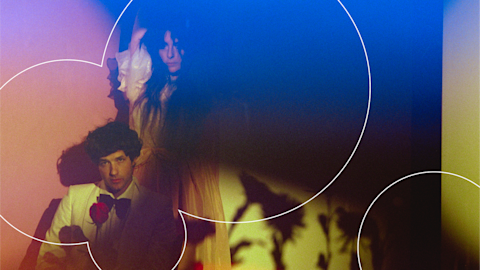
Beach House 如何使用爆紅歌曲提升最新專輯的氣勢
Sub Pop Records 的 Beach House 團隊使用 Marquee (針對藝人最新發行的全螢幕贊助商推薦內容) 促銷其新專輯,在整個作品上創造出光環效應。
The Grammy award-winning mixing engineer finds that staying flexible and breaking traditional rules leads to some of his best work.
Mixing engineers are, by nature, chameleons. The best ones understand they need to be able to apply the same rigor and expertise to work that spans genres and audiences. Grammy award-winning recording engineer and mixer Jeff Ellis knows that flexibility is as important in the booth as it is in life. We talked to him about how he does his best work and how fear played a key role in propelling his career in an unexpected direction.
Spotify for Artists: What were your childhood music obsessions?
Jeff Ellis: When I was 14 or so my parents bought me one of the first digital recording interfaces. I had begged them to get me for some time. My goal was to record myself playing guitar and writing songs. This was very early technology back then and no small feat. I would sit for hours trying to figure out how to get the interface to work and everything simply sounded terrible when it wasn’t crashing. The whole process was endlessly frustrating and at the same time addicting. The whole thing was a giant mystery to me that I needed to solve. I am a problem solver to my core. Guitar music would become a big part of my life growing up but I never once had the thought that I could make it a career. I was never the type of kid that believed he could be the one in a million that could make it big in music. The thought never even entered my mind. When I was young I just assumed that I would have the exact same job my dad did.
Was that a product of fear or fatalism?
Fear led me into a career as an engineer, actually. When I was younger, I didn’t have the bravery or confidence to believe that I was capable or even allowed to pursue an untraditional career path. I always felt like that type of thing was reserved for crazy people and of course it turns out the opposite is true. During most of my time in college I would be recording my bands and trying to produce music digitally and was obsessed with it but it still never seemed like a possible career path especially considering how bad I was at it back then. A moment would come, eventually, where I was sitting at my first “real job” out of college and I had a total emotional meltdown. I had never really taken my life seriously up until that point and only followed the momentum of what safety and security would bring me and that momentum drifted me into a career that I was literally the worst human ever designed for. I freaked out and went home in a panic and sat down at my music computer and called my Uncle Chuck. This uncle, who also bought me my very first guitar, said something that changed my life during this phone call. He said, “Jeff why don’t you be one of those studio guys that twist the knobs and stuff?” I never once thought about this as an option before but the fear of walking another step down my then-current career trajectory finally outweighed my fear of risking doing something that I wanted to do with my life. I was blessed and my dad agreed to let me take a chance at a music engineering school called CRAS and the rest was history.

Jeff Ellis
You’re known for developing highly collaborative relationships with the artists you work with. What’s your collaborative process with artists? How has it developed over time?
I learned early on in mixing records that I need to stay flexible. Having come up in the traditional studio system I’m armed with a fundamental understanding of how an album should be created, but I also have a respect for how breaking traditional rules can create progressive art that can inspire millions. I’m also a big proponent of having the artist in the room with me when I’m mixing. When I have the artist there with me in person I can communicate with them naturally and lovingly with my body language and instantly show them an A/B comparison. It’s a huge time saver and can have a dramatic impact on the art.
How did your tenure at Eastwest Studios (famed Los Angeles studio where The Beach Boys, Frank Sinatra and The Rolling Stones recorded) shape your work and process?
Eastwest studios is magical in that it is one of the few studios in LA that is not pigeonholed into a specific genre. On any given day I might be assisting legendary recording engineers like Eddie Kramer and then the next day watching Justin Timberlake make a beat then sing a hook over it. The following week I might watch Don Was produce a band and go straight into recording an orchestra for the Call of Duty video game. Expose yourself to different types of music, that’s how you get to be a top-level mixer.
—Spotify for Artists
Spotify for Artists 可以幫助你發展所需的粉絲群,以便實現目標。
Sub Pop Records 的 Beach House 團隊使用 Marquee (針對藝人最新發行的全螢幕贊助商推薦內容) 促銷其新專輯,在整個作品上創造出光環效應。
透過藝人檔案輕鬆管理週邊商品並且銷售給粉絲。
